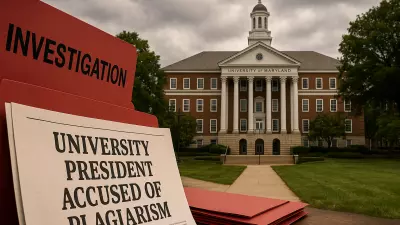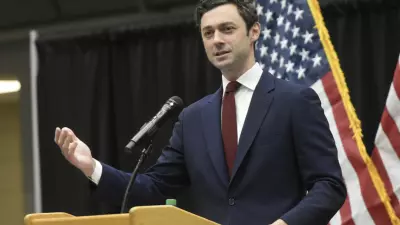Ten months after University of Maryland President Darryll J. Pines was accused of plagiarism, the investigation into the matter is still ongoing at the school.

The questions emerged following a report by the Daily Wire in September 2024 and prompted Pines to initiate an independent inquiry by the university’s Office of Research Integrity.
Reports at the time alleged Pines plagiarized a research paper over two decades ago and were criticized as potentially being part of a move to discredit Black academics. SPIE, the publisher of the 2002 paper, has also launched its internal review.
Mike Sandler, a spokesperson for the University System of Maryland, said independent law firm Ropes & Gray is conducting the probe, the Baltimore Banner reports. Ropes & Gray did not respond to requests for comment from the paper.
“These types of reviews can take some time to conclude,” Sandler reportedly wrote in an email. “In many cases, these reviews can take longer than a year.”
The contested passages appeared in a peer-reviewed engineering journal affiliated with SPIE and resurfaced in a 2006 follow-up paper by Pines and co-author Liming Salvino.
Both documents drew heavily from a tutorial titled “Surfing the Wavelets,” created by Monash University student Joshua Altmann in 1996.
While Pines did not attribute Altmann, some terms remained in British spelling, suggesting subtle alterations rather than a complete rewrite.
Pines, who earned a doctorate from MIT and became UMD’s first Black president in 2020, has maintained that the substance of the research, including its data and conclusions, remains valid.
He acknowledged similarities in the introductory text and said he welcomed a neutral investigation. The university’s process typically takes around 60 days, with findings directed to the system chancellor.
But UMD has now far surpassed that timeline.
Plagiarism experts remain divided on the conclusiveness of any alleged evidence against Pines.
Some describe the overlap as significant and suggest that institutional guidelines require consequences. Others point to the possibility that Pines may not have authored the overlapping sections, noting shared responsibility with the co-author of The Diamondback.
The allegation follows a broader wave of plagiarism investigations targeting prominent university leaders.
Harvard’s President Claudine Gay resigned in early 2024 after similar accusations. Advocacy groups warn that such cases are sometimes weaponized for political ends, especially when they appear among high-profile Black figures in academia.
Meanwhile, most academic institutional standards deem unattributed copying of any substantial portion of text a serious breach, warranting formal action, including notices of misconduct.







